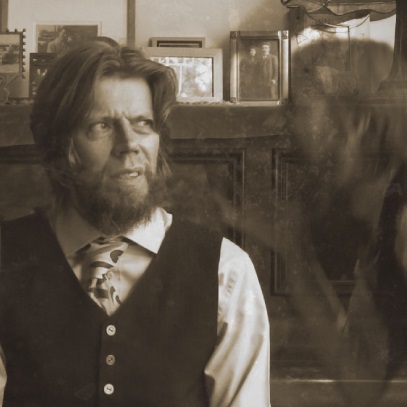 T.K. Bollinger is an artist from Melbourne, Australia. Unfortunately, his informative and aesthetically appealing website (http://tkbollinger.com) isn't active anymore. This is a big event. At last, an artist from Australia. For a very long time I thought that ”Rest of the World” on the site would be just a heading without any content. But, about a year ago I wrote a blog entry called ”Doom from Down Under”, see blog here (opens in a new window). In the blog entry I concluded that T.K. Bollinger’s music was located in the absolute outskirts of what this website dealt with. However, his latest solo album ”Shy Ghosts” pushed me over the brink without mercy. The music of T.K. Bollinger has an unmistakable gothic streak over it, which makes it eligble for this "gothic country" site. T.K. Bollinger is the first (and probably also the last) artist under this heading. T.K. Bollinger wasn’t born and bred in the ”gothic country” community. As a child he was exposed to a lot of different music, for example German folk songs (father) and glorious cheesy pop songs of the 1950s (mother). Both his parents were into music. This strange mix founded a lifelong love for melody and for music in minor key. As T.K. Bollinger grew into adolescence he started to listen to black metal. His tastes shifted again when he got older and matured (Pink Floyd, Grateful Dead, Sonic Youth The Wedding Present, Sonic Youth, Joy Division and New Order). The gloomier the better. In an e-mail he explains: ”I’m very open to new music, though one factor that always comes into play are the lyrics. My ears are attuned to words, so trite or careless rhymes can often sabotage my fondness for an otherwise perfectly constructed piece of music.”
T.K. Bollinger is an artist from Melbourne, Australia. Unfortunately, his informative and aesthetically appealing website (http://tkbollinger.com) isn't active anymore. This is a big event. At last, an artist from Australia. For a very long time I thought that ”Rest of the World” on the site would be just a heading without any content. But, about a year ago I wrote a blog entry called ”Doom from Down Under”, see blog here (opens in a new window). In the blog entry I concluded that T.K. Bollinger’s music was located in the absolute outskirts of what this website dealt with. However, his latest solo album ”Shy Ghosts” pushed me over the brink without mercy. The music of T.K. Bollinger has an unmistakable gothic streak over it, which makes it eligble for this "gothic country" site. T.K. Bollinger is the first (and probably also the last) artist under this heading. T.K. Bollinger wasn’t born and bred in the ”gothic country” community. As a child he was exposed to a lot of different music, for example German folk songs (father) and glorious cheesy pop songs of the 1950s (mother). Both his parents were into music. This strange mix founded a lifelong love for melody and for music in minor key. As T.K. Bollinger grew into adolescence he started to listen to black metal. His tastes shifted again when he got older and matured (Pink Floyd, Grateful Dead, Sonic Youth The Wedding Present, Sonic Youth, Joy Division and New Order). The gloomier the better. In an e-mail he explains: ”I’m very open to new music, though one factor that always comes into play are the lyrics. My ears are attuned to words, so trite or careless rhymes can often sabotage my fondness for an otherwise perfectly constructed piece of music.”
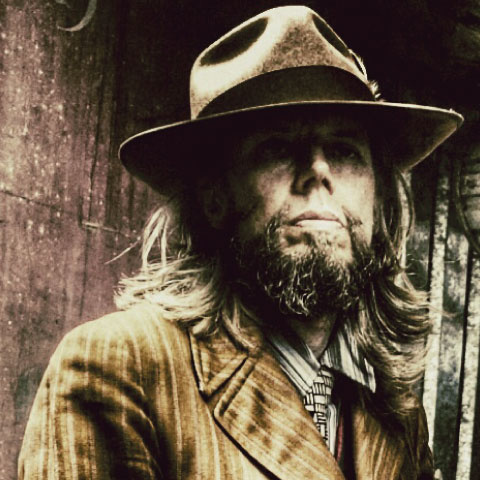 T.K. Bollinger’s list of musical projects is as long as a repeat offender, see list (http://tkbollinger.com). Here you can read about his long and winding road along musical projects, names and constellations. In an e-mail he writes: ”It took me a while to compile all my previous musical projects. I’m a bit of a bridge burner with old projects, always looking to what’s new, rather than what I have accomplished. Sometimes it’s good to take stock of the past, and those bios were fun to write.” One important project (in this context) isn’t mentioned so much on the site. It’s an album of folk song arrangements of the poems of bush balladeer Barcroft Boake from 2004. Barcroft Boake was a surveyor and a boundary rider, but is best remembered for his poetry, a volume of which was published five years after his death in 1892. "Where the Dead Men Lie" is the most famous of his poems, which described the tragedies Australians faced during the 1891-93 depression. Barcroft Boake hung himself, at the age of 26, with his stockwhip on the shores of Middle Harbour in Sydney in 1892. Boake probably suffered from depression and was allegedly also torn by his love for two sisters with the family name McKeahnie. In the e-mail T.K. Bollinger explains what made him record the album: ”How could I not be inspired? His poetry is very much in the tradition of the Australian bush ballad, but there is an edge of modernity in his work as well – themes of death, alienation and lost love and hope. …At the time I was searching for what I wanted to do with the country music I was rediscovering and falling in love with at the time.” However, the interest in gothic country/dark roots music evoke during a road trip with his girlfriend. At the time T.K. Bollinger was very much steeped in electronica(!) and composing music with a laptop. In the e-mail T.K. Bollinger writes: ”The music we were discovering on the road also turned me back to acoustic music. I stayed with a guy in NSW [New South Wales, my remark] who had stunning taste in sad songs. I started listening to artists that I had missed when lost in the world of electronica, like Laura Viers, Jolie Holland, Neko Case, Iris DeMent, Edith Frost, Gillian Welch and Devendra Banhart. Perhaps not dark country per se, but definitely roots music that explored the themes I equate with it. I also discovered a great compilation which had bands like 16 Horsepower, The Handsome Family and Lambchop on it. And then I found the music of Townes Van Zandt, which opened the flood gates and sent me back to the roots of Americana like the Carter Family and Jimmie Rodgers. The whole Americana revival, though I think it was still called alt-country back then, hit me in the heart. When we finally reached the end of the road in Darwin, I had more time to think and compose, and that’s actually where I discover Barcroft Boake and composed my arrangement of Where the Dead Men Lie. After traveling through the desert to reach Darwin, witnessing the desolation and stillness of that arid land, I was convinced music would once more revert to tap stick, didgeridoos and acoustic guitars after the hammer of the gods obliterated all of humanity's means to generate electricity. I still live in hope. The other great insight I had into the dark roots underground was when Dustin Jeffries of the Death Roots Syndicate, someone who I am honoured to call my friend, made contact with me. He’s done a lot, along with your embassy, to help shine the light into the darkness. In fact I didn’t really know this kind of music was a “thing” until Dustin invited me onto the Death Roots Syndicate Vol. 2 compilation. While we have a few dark country acts in Australia, I always thought I was more a freak humming sad songs in my own little dark musical world. It looks like I was wrong about that. Well, I still think I’m a freak.”
T.K. Bollinger’s list of musical projects is as long as a repeat offender, see list (http://tkbollinger.com). Here you can read about his long and winding road along musical projects, names and constellations. In an e-mail he writes: ”It took me a while to compile all my previous musical projects. I’m a bit of a bridge burner with old projects, always looking to what’s new, rather than what I have accomplished. Sometimes it’s good to take stock of the past, and those bios were fun to write.” One important project (in this context) isn’t mentioned so much on the site. It’s an album of folk song arrangements of the poems of bush balladeer Barcroft Boake from 2004. Barcroft Boake was a surveyor and a boundary rider, but is best remembered for his poetry, a volume of which was published five years after his death in 1892. "Where the Dead Men Lie" is the most famous of his poems, which described the tragedies Australians faced during the 1891-93 depression. Barcroft Boake hung himself, at the age of 26, with his stockwhip on the shores of Middle Harbour in Sydney in 1892. Boake probably suffered from depression and was allegedly also torn by his love for two sisters with the family name McKeahnie. In the e-mail T.K. Bollinger explains what made him record the album: ”How could I not be inspired? His poetry is very much in the tradition of the Australian bush ballad, but there is an edge of modernity in his work as well – themes of death, alienation and lost love and hope. …At the time I was searching for what I wanted to do with the country music I was rediscovering and falling in love with at the time.” However, the interest in gothic country/dark roots music evoke during a road trip with his girlfriend. At the time T.K. Bollinger was very much steeped in electronica(!) and composing music with a laptop. In the e-mail T.K. Bollinger writes: ”The music we were discovering on the road also turned me back to acoustic music. I stayed with a guy in NSW [New South Wales, my remark] who had stunning taste in sad songs. I started listening to artists that I had missed when lost in the world of electronica, like Laura Viers, Jolie Holland, Neko Case, Iris DeMent, Edith Frost, Gillian Welch and Devendra Banhart. Perhaps not dark country per se, but definitely roots music that explored the themes I equate with it. I also discovered a great compilation which had bands like 16 Horsepower, The Handsome Family and Lambchop on it. And then I found the music of Townes Van Zandt, which opened the flood gates and sent me back to the roots of Americana like the Carter Family and Jimmie Rodgers. The whole Americana revival, though I think it was still called alt-country back then, hit me in the heart. When we finally reached the end of the road in Darwin, I had more time to think and compose, and that’s actually where I discover Barcroft Boake and composed my arrangement of Where the Dead Men Lie. After traveling through the desert to reach Darwin, witnessing the desolation and stillness of that arid land, I was convinced music would once more revert to tap stick, didgeridoos and acoustic guitars after the hammer of the gods obliterated all of humanity's means to generate electricity. I still live in hope. The other great insight I had into the dark roots underground was when Dustin Jeffries of the Death Roots Syndicate, someone who I am honoured to call my friend, made contact with me. He’s done a lot, along with your embassy, to help shine the light into the darkness. In fact I didn’t really know this kind of music was a “thing” until Dustin invited me onto the Death Roots Syndicate Vol. 2 compilation. While we have a few dark country acts in Australia, I always thought I was more a freak humming sad songs in my own little dark musical world. It looks like I was wrong about that. Well, I still think I’m a freak.”
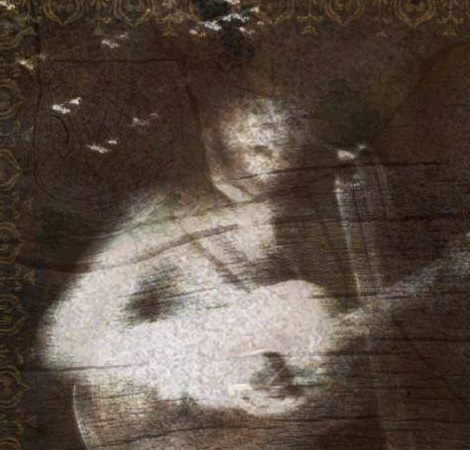 T.K. Bollinger can be labeled ”sadcore” (a branch of "slowcore"), ”doom blues”, ”country blues”,”gothic country” and my own term ”electro-acoustic gloom”. In the e-mail T.K. Bollinger writes about the changes in his music over the years: ”It may have changed in style, but there is a unifying principal in it, which is sadness. I would predominantly call what I do sadcore, because it sums it up nicely. Minor keys, depressing lyrical themes, exploration of the morbid and moribund, slow tempos: these have been at the heart of my musical compositions, whether they are alt-rock, acid folk, skip-hop, electronica or acoustic folk and country. I think I have changed only in that I have a better ear now than when I started. My songwriting craft has improved and it keeps improving the more I do it. I am seldom without a song buzzing around my brain, whether it is one I am composing, or an earworm that has found it’s way into my head. I suppose it’s the way I deal with my own anxieties as well, having a song to sing in order to soothe the demons within.” T.K. Bollinger is self-taught on guitar. There was always one acoustic guitar or two laying around in his house when he was growing up. His father tried to teach him the basics, but T.K. Bollinger was lazy and didn’t really practise (and practise makes perfect). T.K. Bollinger’s brother bought him a fender strat and a practise amp for his eighteenth birthday. T.K. Bollinger learned som chords and a few songs, but thought that it didn’t sound right. In the e-mail T.K. explains: ”Songwriting was really the vehicle that enabled me to persevere and learn to play the guitar. That being said, I don’t consider myself a particularly accomplished guitarist. I am self-taught and while I finger pick to make it sound more complex, my lead work is very much a case of playing by the seat of my pants. I envy those who know the fret board and can improvise easily on guitar. I have my favourite chords, minor of course, and will let my voice play the melody on top. So the guitar is more an accompanying instrument to me rather than a vehicle I can use to fully and freely express myself. I do that more easily with my voice.” The guitar that has stayed with T.K. Bollinger the longest in his song-writing journey is a red Art and Lutherie Spruce series guitar he picked up second hand for $100. T.K. Bollinger has written hundreds of songs on it and it still keeps giving.
T.K. Bollinger can be labeled ”sadcore” (a branch of "slowcore"), ”doom blues”, ”country blues”,”gothic country” and my own term ”electro-acoustic gloom”. In the e-mail T.K. Bollinger writes about the changes in his music over the years: ”It may have changed in style, but there is a unifying principal in it, which is sadness. I would predominantly call what I do sadcore, because it sums it up nicely. Minor keys, depressing lyrical themes, exploration of the morbid and moribund, slow tempos: these have been at the heart of my musical compositions, whether they are alt-rock, acid folk, skip-hop, electronica or acoustic folk and country. I think I have changed only in that I have a better ear now than when I started. My songwriting craft has improved and it keeps improving the more I do it. I am seldom without a song buzzing around my brain, whether it is one I am composing, or an earworm that has found it’s way into my head. I suppose it’s the way I deal with my own anxieties as well, having a song to sing in order to soothe the demons within.” T.K. Bollinger is self-taught on guitar. There was always one acoustic guitar or two laying around in his house when he was growing up. His father tried to teach him the basics, but T.K. Bollinger was lazy and didn’t really practise (and practise makes perfect). T.K. Bollinger’s brother bought him a fender strat and a practise amp for his eighteenth birthday. T.K. Bollinger learned som chords and a few songs, but thought that it didn’t sound right. In the e-mail T.K. explains: ”Songwriting was really the vehicle that enabled me to persevere and learn to play the guitar. That being said, I don’t consider myself a particularly accomplished guitarist. I am self-taught and while I finger pick to make it sound more complex, my lead work is very much a case of playing by the seat of my pants. I envy those who know the fret board and can improvise easily on guitar. I have my favourite chords, minor of course, and will let my voice play the melody on top. So the guitar is more an accompanying instrument to me rather than a vehicle I can use to fully and freely express myself. I do that more easily with my voice.” The guitar that has stayed with T.K. Bollinger the longest in his song-writing journey is a red Art and Lutherie Spruce series guitar he picked up second hand for $100. T.K. Bollinger has written hundreds of songs on it and it still keeps giving.
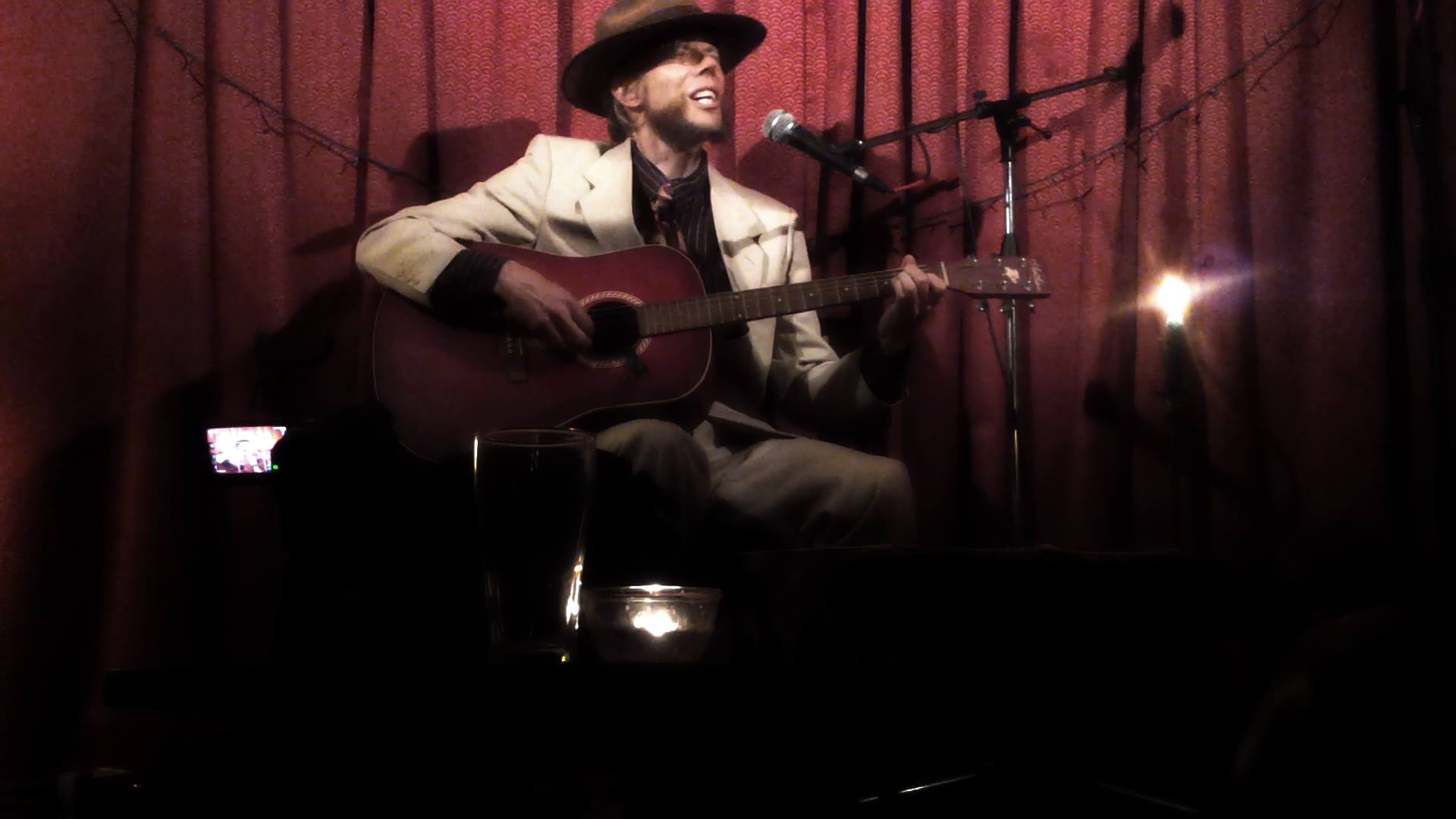 As we have seen abundantly clear in this article series is that the injustices in the "gothic country" genre are numerous, extensive and outrageous. In my opinion T.K. Bollinger is a great songwriter, although sadly neglected and criminally overlooked. In the email T.K. Bollinger describes how his songwriting process looks like: ”This is one of my favourite topics at the moment. I’m becoming fascinated with artistic process, which probably isn’t the most exciting topic for people who don’t write, but it’s never too late to learn people. There is an excellent book called ”Art and Fear” that tells the story of a ceramics class where the students were split into two groups and told that one group would be marked on the quantity of their work, by the kilogram basically, while the other half would be judged on their work’s quality. While the quality half spent the semester perfecting and painstakingly creating their one “perfect” piece, the other half churned out more and more work. In the end, the best work came, not from the perfectionists, but from those who just kept ploughing on. This, I feel, is the secret to making any good or worthwhile work. Keep doing it. The more you do, the better you get. One piece leads to the next piece, and there is not, necessarily, an end in sight other than the creation of the work itself. Certainly we should celebrate our achievements, but the terrain of creation is mountainous, with valleys and peaks. It’s not a flat curve towards perfection. The point is to just keep writing, keep creating. I generally begin with a melody. Sometimes it will just come out of the blue, or I’ll sit down with a coffee and pick up my guitar and see what chord patterns emerge. The melody will lead me, and a song will evolve after I find a hook in the form of a melody. My melodies often sound, to my mind, like mournful horn lines. Perhaps I’m a frustrated horn player who never developed his chops. Words come a lot more difficultly. It’s a bit more like pulling teeth, and often I’ll vary the melody to fit a word. Writing prose has always come naturally to me. Poetry, which I think is what lyrics should emulate, if not imitate, is a much more refined form of word-smithing. However there is great joy in discovering and uncovering resonant lyrical ideas. I think, like all art, persistence is the key. A song will usually feel finished, otherwise it may just end up as a sketch in my notebook, perhaps being resurrected after enough water has flowed under the bridge for me not to cringe at what has emerged. Thematically, well that’s usually a given with my music: it’s going to be sad. Though I do have an angry preachy side that comes out as well. My soap box songs. Usually I’ll collect these songs together and they tend to form a theme by themselves. Though with Shy Ghosts, I had the album title before I wrote the songs. I wanted to write sparsely arranged songs that looped in their musical foundations and that I could build melodic themes on top of. I am fascinated by songs that work like that. A few, perhaps surprising examples in pop spring to mind. Wicked Game by Chris Isaak is built on a 4 chord loop. As is George Michael’s Careless Whisper. No matter what you think of the songs themselves, it’s amazing how a basic musical structure can be expanded and exploited by melodic themes. So that’s one project where I actually went in with a thematic idea and tried to make something coherent as a body of work. I’ve been blogging about my song writing process and intend to write more this year, so for those people interested or engaged in the craft, you are welcome to visit the news section of my website and read more." In the e-mail T.K. Bollinger develops his views on the creative process when it comes to finding themes, moods and expressions for his lyrics: ”It can be a struggle to come up with ideas off the cuff. The best way to prevent the frustration of writers block, apart from constantly writing, is to take notes or journal. I often have lyric ideas pop into my head. Phrases, themes etc. I write them down and then refer to them when I am sitting down and writing a song. Sometimes they lead to a whole song. Sometimes they act as dummy lyrics, or placeholders where I flesh out a melody and then rewrite once the song structure is in place.”
As we have seen abundantly clear in this article series is that the injustices in the "gothic country" genre are numerous, extensive and outrageous. In my opinion T.K. Bollinger is a great songwriter, although sadly neglected and criminally overlooked. In the email T.K. Bollinger describes how his songwriting process looks like: ”This is one of my favourite topics at the moment. I’m becoming fascinated with artistic process, which probably isn’t the most exciting topic for people who don’t write, but it’s never too late to learn people. There is an excellent book called ”Art and Fear” that tells the story of a ceramics class where the students were split into two groups and told that one group would be marked on the quantity of their work, by the kilogram basically, while the other half would be judged on their work’s quality. While the quality half spent the semester perfecting and painstakingly creating their one “perfect” piece, the other half churned out more and more work. In the end, the best work came, not from the perfectionists, but from those who just kept ploughing on. This, I feel, is the secret to making any good or worthwhile work. Keep doing it. The more you do, the better you get. One piece leads to the next piece, and there is not, necessarily, an end in sight other than the creation of the work itself. Certainly we should celebrate our achievements, but the terrain of creation is mountainous, with valleys and peaks. It’s not a flat curve towards perfection. The point is to just keep writing, keep creating. I generally begin with a melody. Sometimes it will just come out of the blue, or I’ll sit down with a coffee and pick up my guitar and see what chord patterns emerge. The melody will lead me, and a song will evolve after I find a hook in the form of a melody. My melodies often sound, to my mind, like mournful horn lines. Perhaps I’m a frustrated horn player who never developed his chops. Words come a lot more difficultly. It’s a bit more like pulling teeth, and often I’ll vary the melody to fit a word. Writing prose has always come naturally to me. Poetry, which I think is what lyrics should emulate, if not imitate, is a much more refined form of word-smithing. However there is great joy in discovering and uncovering resonant lyrical ideas. I think, like all art, persistence is the key. A song will usually feel finished, otherwise it may just end up as a sketch in my notebook, perhaps being resurrected after enough water has flowed under the bridge for me not to cringe at what has emerged. Thematically, well that’s usually a given with my music: it’s going to be sad. Though I do have an angry preachy side that comes out as well. My soap box songs. Usually I’ll collect these songs together and they tend to form a theme by themselves. Though with Shy Ghosts, I had the album title before I wrote the songs. I wanted to write sparsely arranged songs that looped in their musical foundations and that I could build melodic themes on top of. I am fascinated by songs that work like that. A few, perhaps surprising examples in pop spring to mind. Wicked Game by Chris Isaak is built on a 4 chord loop. As is George Michael’s Careless Whisper. No matter what you think of the songs themselves, it’s amazing how a basic musical structure can be expanded and exploited by melodic themes. So that’s one project where I actually went in with a thematic idea and tried to make something coherent as a body of work. I’ve been blogging about my song writing process and intend to write more this year, so for those people interested or engaged in the craft, you are welcome to visit the news section of my website and read more." In the e-mail T.K. Bollinger develops his views on the creative process when it comes to finding themes, moods and expressions for his lyrics: ”It can be a struggle to come up with ideas off the cuff. The best way to prevent the frustration of writers block, apart from constantly writing, is to take notes or journal. I often have lyric ideas pop into my head. Phrases, themes etc. I write them down and then refer to them when I am sitting down and writing a song. Sometimes they lead to a whole song. Sometimes they act as dummy lyrics, or placeholders where I flesh out a melody and then rewrite once the song structure is in place.”
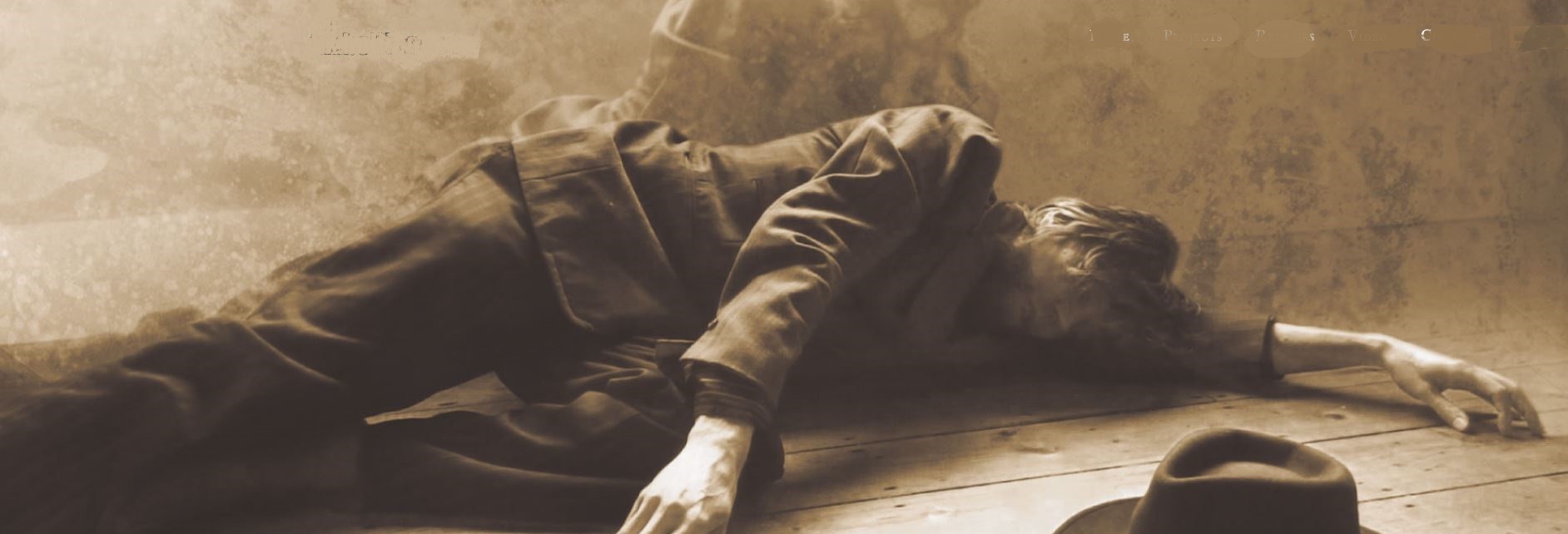
Doom and gloom from Down Under, is that conceivable? To increase the difficulty level further T.K. Bollinger doesn’t exactly make music for the masses. In an e-mail I asked him if Australia has a more or less open mind towards his kind of music compared with USA or Europe. He replied: ”I think the masses are the masses wherever you go. The style of music I play is thought proving and reflective. It probably is something someone enjoys listening to alone, or in ear buds on their journey through life. I have not received much of a reaction from critics or music observers in Australia. Most of my feedback has come from people like yourself and, surprisingly, metal/doom blogs in Europe and the States. While Australians like Nick Cave have been at the forefront of inspiring this style of music, that’s not to say that it’s something Australians naturally take to. Australia is an odd place. It seems easy going and welcoming on the surface but there is a darkness below. I put this down to the unresolved issues of invasion and colonialism and the lack of any real on going deep examination of these issues by the wider public. This is probably the depths of the iceberg that inspires the darkness in Australian art.” My assessment: “Gothic country” and its genre cousins thrives in all time and climate zones, so also in the Southern Hemisphere. What I particularly like about T.K. Bollinger is that the doom and the gloom is balanced with a considerable proportion of fragility. Add to this, honesty. In the email, T.K. Bollinger answers a question about his preferences regarding writing and recording songs or performing live: ”They each have their own allure. Writing comes most naturally to me, probably because I have done more of it, than the other two. I find recording and performing much more stressful. Recording holds this pressure of perfection for me, which I’ve learned to set at ease by taking on the recording process myself. In the past when I have gone in to studios I’ve felt the pressure of time and my own feelings of inadequacy – performing in front of an engineer, straight jacketed by microphone placement, expectations of perfect performances etc – has forced me to compromise. Accordingly I’ve rarely been happy with the end result. I recorded Shy Ghosts entirely by myself, and, to my mind, it’s the most authentic and pleasing recording I’ve managed to make. I enjoy performing live, though I don’t necessarily enjoy the process of organizing live performance. There is an abundance of music in Melbourne, and venue bookers here are often aloof and unsupportive of music that doesn’t fit the mould. I understand they are conducting a business, so I don’t necessarily hold a grudge. That being said, there are some amazingly supportive smaller venues in Melbourne and in country Victoria. These are the places I usually play, and while the crowds may be small, I think my music is more suited to intimacy, rather than to the more rowdy crowds of beer barns and rock pubs.”
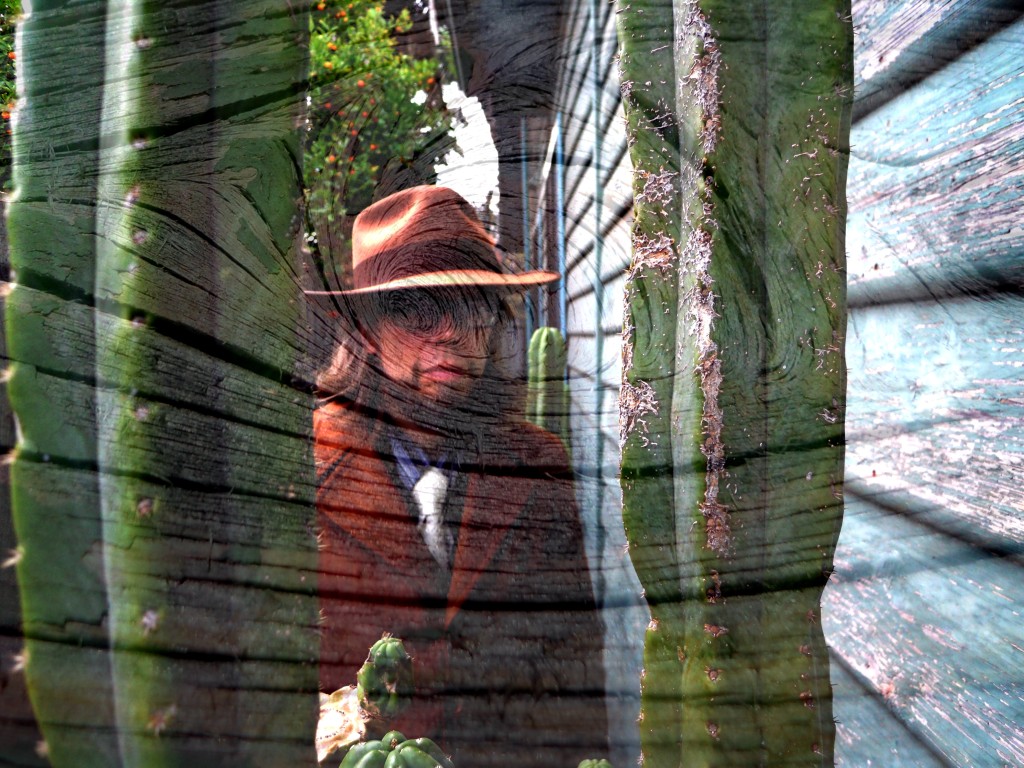 Regarding the future for musicians/bands in the “gothic country/dark roots” vein, T.K. Bollinger declares: ”I’m excited to have found this community. I like the fact that it has a DIY ethos and is very welcoming. The darkness in it also tends to keep the vultures of the music industry away. I think that there are so many talented people out there discovering each other through the web and making contact with each other that the future of music creation, in any genre or style, can only get brighter and brighter (or darker and darker if that’s your creative bent). As post millennial artists hooked into this amazing communication device, we are able to connect easily with our listeners. That means we can develop great relationships and involve them in what we do. I think that will benefit everyone so far as creating great music.” T.K. Bollinger has been an important part of the Melbourne underground scene for over 25 years and the discography is impressing. I recently stumbled over T.K. Bollinger’s music and my focus is from ”A Catalogue of Woe” and onwards. I still dare to say that his magnum opus is ”Shy Ghosts”, which was released in 2016. As stated above the album was recorded entirely by himself and it’s the most authentic and pleasing recording he has managed to make. I agree. The album hit me hard and left a mark. When the last song on the album faded out I was speechless and almost unable to move. However, I directly knew what caused the paralysis. It was one of these rare moments in life when music speaks directly to you. It doesn’t happen too often, believe me. You can read my full review here (opens in a new window). ”Shy Ghosts” is, of course, a must-have album for everyone remotely interested in the ”gothic country” genre. In the email T.K. Bollinger reveals his future plans: ”I’m always writing, so that will continue. I have another t.k. bollinger and that sinking feeling album in the pipeline as well. I’m also keen to collaborate more this year, and I am chatting to a few local and overseas artistes at the moment, so who knows what may come of that. Basically, keep on writing, keep on working.” On October 31th 2017 T.K. Bollinger released a second album “What’s Left Now You Are Dead To Me.” You can read my full review here (opens in a new window). This is another great album by T.K. Bollinger, although not as magnificent as ”Shy Ghosts". On July 31th 2018 T.K. Bollinger released a third album “The Tighter You Hold Onto Something The More Likely It Will Fall Apart In Your Hands" You can read my full review here (opens in a new window). On April 10th 2020 T.K. Bollinger released a fourth album “The Child Who Does Not Feel the Comfort of the Village will Burn it Down to Feel its Warmth" You can read my full review here (opens in a new window). A new album project is on the way, read more here (opens in a new window).
Regarding the future for musicians/bands in the “gothic country/dark roots” vein, T.K. Bollinger declares: ”I’m excited to have found this community. I like the fact that it has a DIY ethos and is very welcoming. The darkness in it also tends to keep the vultures of the music industry away. I think that there are so many talented people out there discovering each other through the web and making contact with each other that the future of music creation, in any genre or style, can only get brighter and brighter (or darker and darker if that’s your creative bent). As post millennial artists hooked into this amazing communication device, we are able to connect easily with our listeners. That means we can develop great relationships and involve them in what we do. I think that will benefit everyone so far as creating great music.” T.K. Bollinger has been an important part of the Melbourne underground scene for over 25 years and the discography is impressing. I recently stumbled over T.K. Bollinger’s music and my focus is from ”A Catalogue of Woe” and onwards. I still dare to say that his magnum opus is ”Shy Ghosts”, which was released in 2016. As stated above the album was recorded entirely by himself and it’s the most authentic and pleasing recording he has managed to make. I agree. The album hit me hard and left a mark. When the last song on the album faded out I was speechless and almost unable to move. However, I directly knew what caused the paralysis. It was one of these rare moments in life when music speaks directly to you. It doesn’t happen too often, believe me. You can read my full review here (opens in a new window). ”Shy Ghosts” is, of course, a must-have album for everyone remotely interested in the ”gothic country” genre. In the email T.K. Bollinger reveals his future plans: ”I’m always writing, so that will continue. I have another t.k. bollinger and that sinking feeling album in the pipeline as well. I’m also keen to collaborate more this year, and I am chatting to a few local and overseas artistes at the moment, so who knows what may come of that. Basically, keep on writing, keep on working.” On October 31th 2017 T.K. Bollinger released a second album “What’s Left Now You Are Dead To Me.” You can read my full review here (opens in a new window). This is another great album by T.K. Bollinger, although not as magnificent as ”Shy Ghosts". On July 31th 2018 T.K. Bollinger released a third album “The Tighter You Hold Onto Something The More Likely It Will Fall Apart In Your Hands" You can read my full review here (opens in a new window). On April 10th 2020 T.K. Bollinger released a fourth album “The Child Who Does Not Feel the Comfort of the Village will Burn it Down to Feel its Warmth" You can read my full review here (opens in a new window). A new album project is on the way, read more here (opens in a new window).
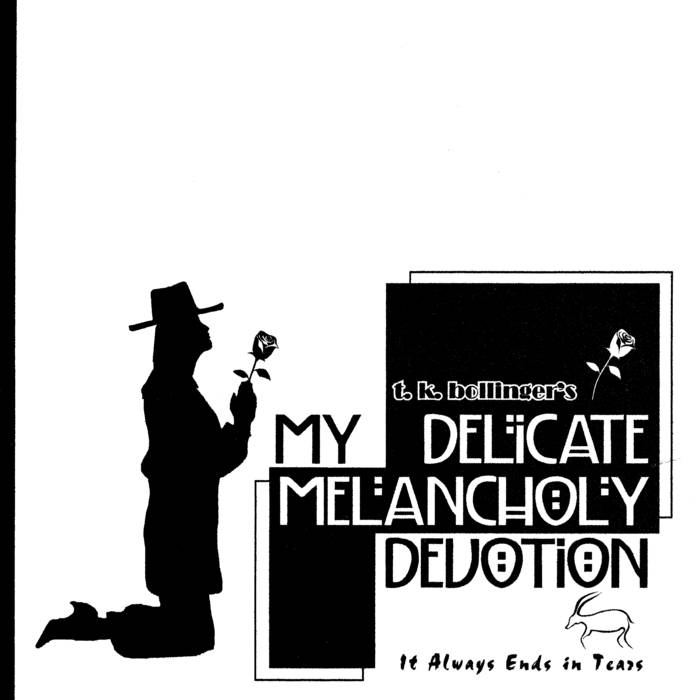 |
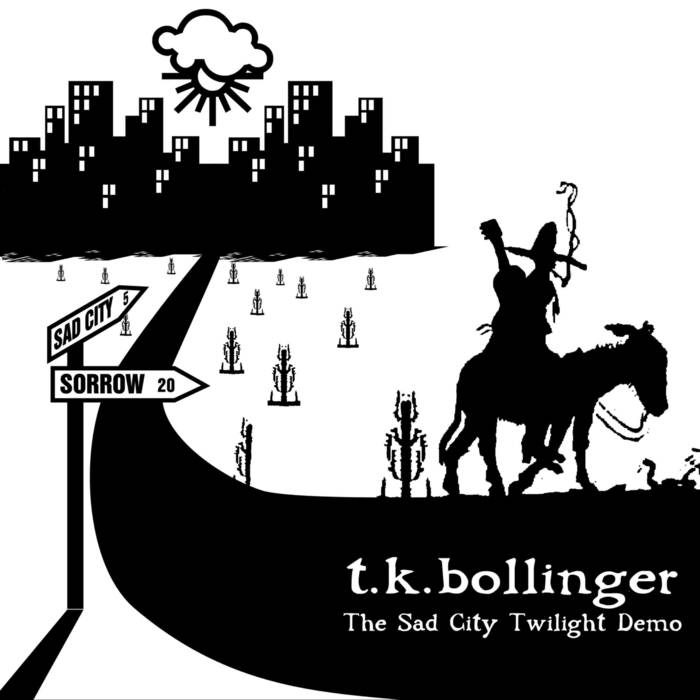 |
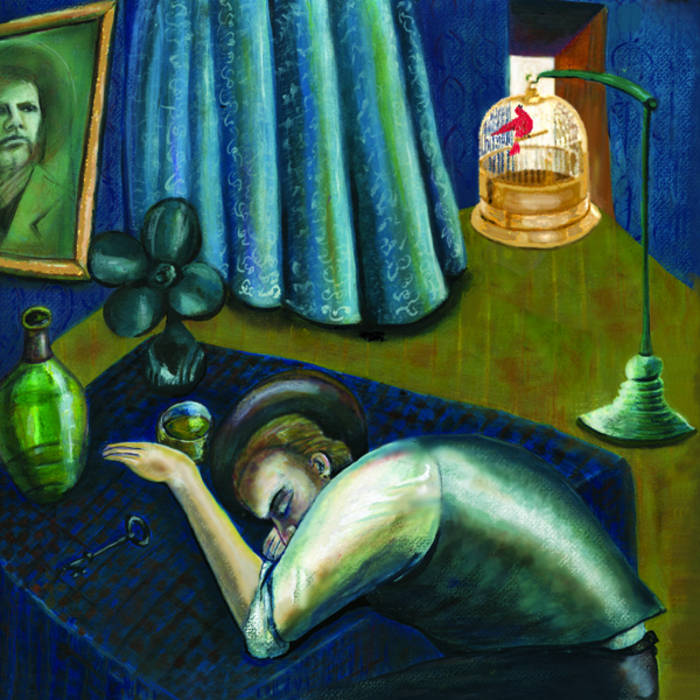 |
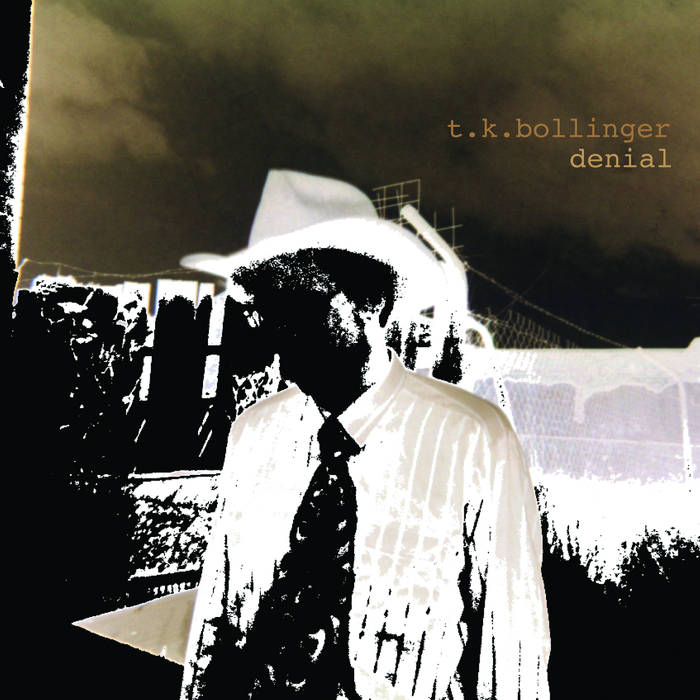 |
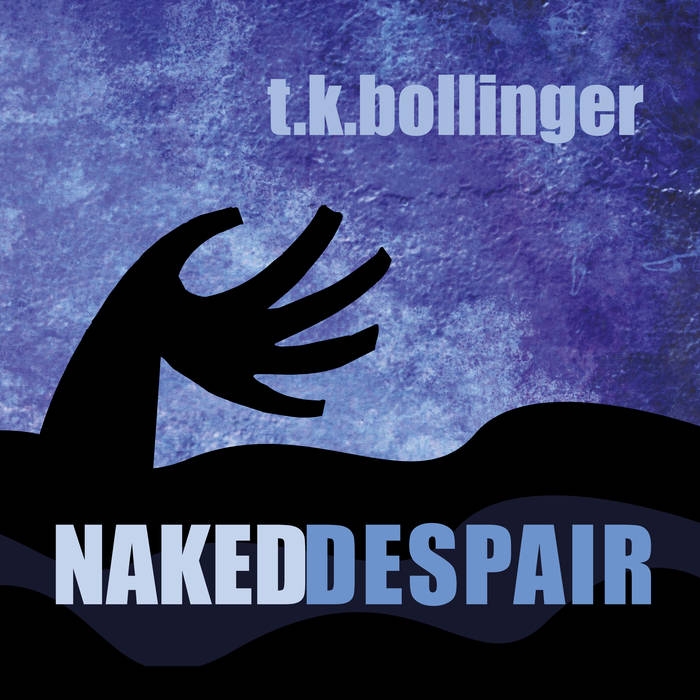 |
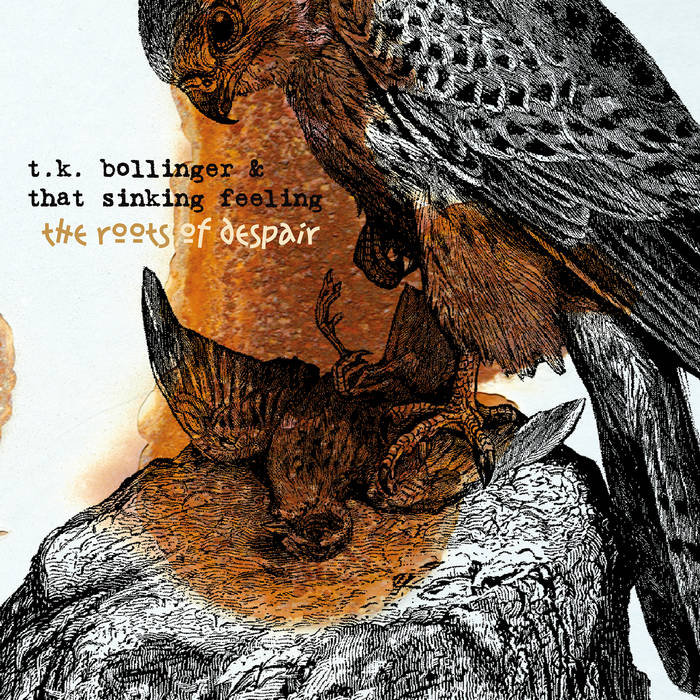 |
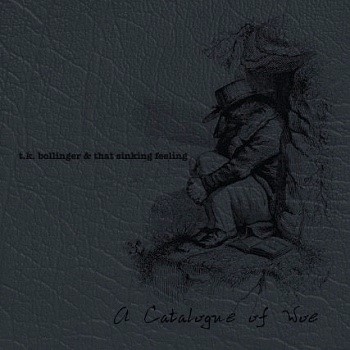 |
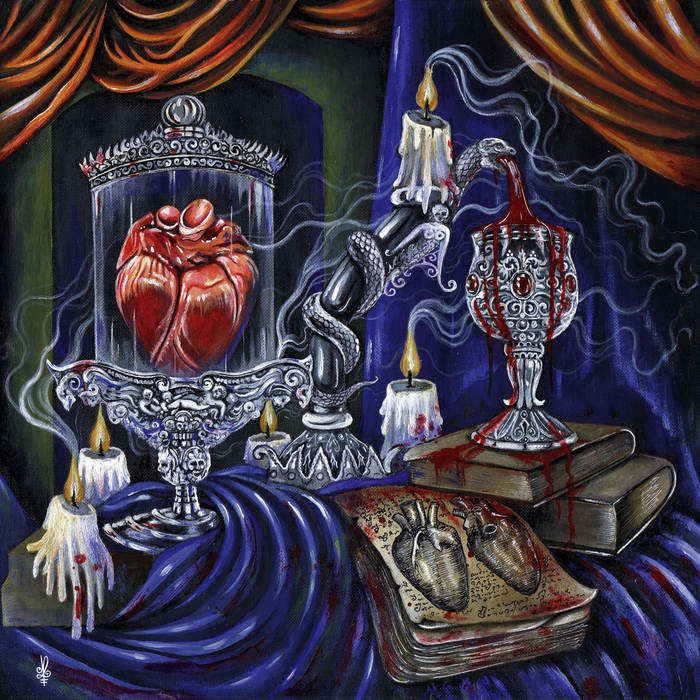 |
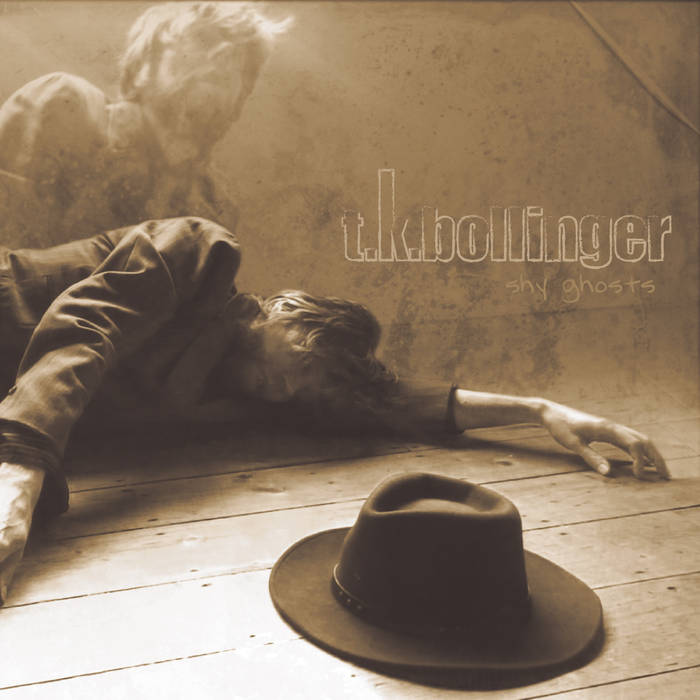 |
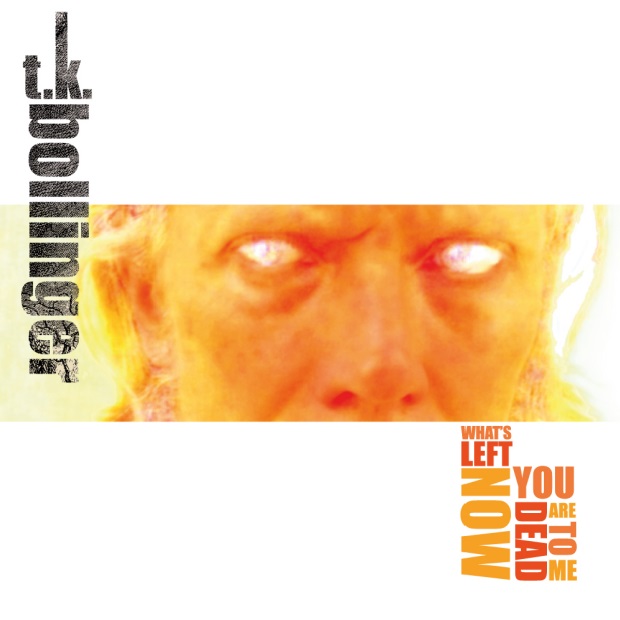 |
 |
 |
I made the weird decision to include "Shy Ghosts" in its entirety. Perhaps now you understand how good it is. I will update the list with songs from the latest release. Below is a suggestion for a CD compilation.
|
No |
Song |
Album |
|
1 |
All Seems Lost |
Shy Ghosts |
|
2 |
The Milk of Human Kindness |
Shy Ghosts |
|
3 |
No More |
Shy Ghosts |
|
4 |
Nothing At All |
Shy Ghosts |
|
5 |
Habits Defeat Me |
Shy Ghosts |
|
6 |
The Limits of What We Can Love |
Shy Ghosts |
|
7 |
Where Has It All Gone |
Shy Ghosts |
|
8 |
'Til Exhaustion or Collapse |
Shy Ghosts |
|
9 |
All I Feel is Cold |
Shy Ghosts |
|
10 |
The Body Remains |
Shy Ghosts |
|
11 |
If I'm Not Ashamed |
Shy Ghosts |
|
12 |
Sad and Broken |
Shy Ghosts |
|
13 |
Flesh and Bone |
Shy Ghosts |
Best album: Shy Ghosts
Best songs: All Seems Lost, Nothing At All, The Limits of What We Can Love, 'Til Exhaustion or Collapse, All I Feel is Cold, If I'm Not Ashamed, Sad and Broken, Flesh and Bone
